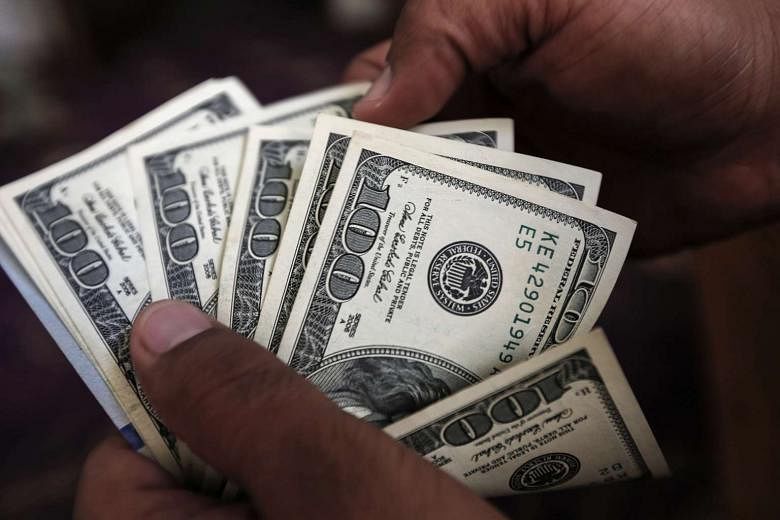SYDNEY (REUTERS, AFP) - Stocks in Asia slumped, safe haven bonds and yen jumped, while oil prices surged over 2 per cent on Friday (April 7) after the United States launched cruise missiles against an air base in Syria, potentially escalating the conflict and spooking investors globally.
The response was immediate with the US dollar dropping over half a yen in currency markets, while sovereign bonds, gold and oil prices rallied hard.
Hong Kong fell 1.1 per cent, Shanghai slipped 0.2 per cent, Sydney fell 0.3 per cent and Seoul was 0.4 per cent off. Tokyo ended the morning 0.1 per cent lower as the soaring yen - which was sitting at lows not seen since November - hit exporters.
Singapore's Straits Times Index, which fell 0.9 per cent earlier, was trading down 0.65 per cent at 3,154.87 at 11:40am.
The yen, a favoured haven in times of stress due to Japan's position as the world's largest creditor nation, climbed across the board. The US dollar fell to 110.30 from 110.95 just before news of the attacks hit dealing screens.
The dollar was otherwise unscathed, however, as it benefited from flows into safe-haven US Treasuries. Against a basket of currencies it was barely lower, while the euro held steady at US$1.0649.
Yields on 10-year Treasury debt fell five basis points to 2.29 per cent, breaking a significant chart barrier at 2.30 per cent for the first time this year.
Oil prices surged more than 2 per cent to a one-month high on concerns the military intervention could impact supplies from the Middle East.
International benchmark Brent crude futures jumped to US$56.08 per barrel before easing to US$55.71 per barrel at 0519 GMT, still up 1.5 per cent from its last close. US West Texas Intermediate (WTI) crude futures also climbed by more than 2 per cent, to a high of US$52.94 a barrel before receding to US$52.56, up 1.7 per cent. Both benchmarks hit their highest levels since early March.
"The US cruise missile strikes have seen crude oil jump over two percent in a straight line," said Jeffrey Halley, senior market analyst at futures brokerage OANDA in Singapore. Halley said the strikes had potentially big implications for oil markets. Syria has limited oil production, but its location in the Middle East and alliances with big oil producers raised worries about spreading conflict that could disrupt crude shipments.
What will be the response of Iran and Russia, two of the world's largest oil producers and staunch allies of the Assad regime? ... We will have to wait for these answers as the day moves on," Halley said.
Spot gold prices jumped 1.2 per cent to US$1,266.01 an ounce and touched their highest since Nov 10.
"Clearly this raises the stakes, and we expect to see gold prices continuing to push higher in the short term, at least until there is some clarity around whether this is a one-off or develops into something more," ANZ analyst Daniel Hynes said.
The US military launched cruise missile strikes ordered by President Donald Trump against a Syrian air base controlled by President Bashar al-Assad's forces in response to a deadly chemical attack in a rebel-held area, a US official said. The attack targeted hangars, planes and fuel tanks at one military airfield, according to a US official.
Facing his biggest foreign policy crisis since taking office in January, Trump took the toughest direct US action yet in Syria's six-year-old civil war, raising the risk of confrontation with Russia and Iran, Assad's two main military backers.
Investors had already been on edge as Trump met Chinese leader Xi Jinping for talks over flashpoints such as North Korea and China's huge trade surplus with the United States.
"While President Trump had flagged a response to this week's chemical attack in Syria, the swiftness of the response and the willingness to take action halfway through the Trump-Xi meeting caught markets a little off-guard," said Sean Callow, senior currency strategist at Westpac in Sydney. "There should be limited market follow-through however, with no indication at this stage that this is the start of a broad-based, sustained US military campaign."

